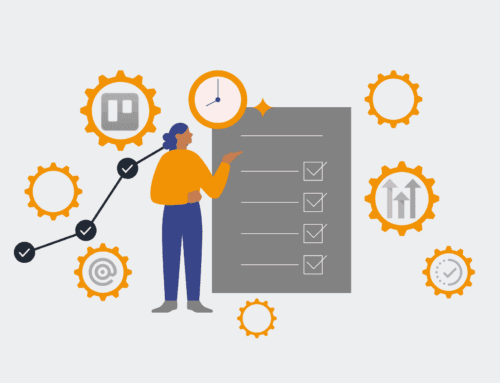Decoding Data: Analytics from Your Automated Interview Scheduling
In the relentless pursuit of efficiency, many organizations have wisely embraced automated interview scheduling. This move, often driven by the desire to eliminate the soul-crushing back-and-forth of calendar coordination, undoubtedly saves precious hours for recruiters and candidates alike. Yet, for many, the journey stops there. What’s often overlooked is that automated scheduling isn’t just a time-saver; it’s a powerful data generator, silently collecting invaluable insights that, when decoded, can profoundly optimize your talent acquisition strategy and even inform broader operational improvements.
At 4Spot Consulting, we’ve witnessed firsthand how businesses, once bogged down in manual processes, transform when they begin to leverage the data their automated systems produce. It’s about shifting from simply doing to truly understanding. This isn’t theoretical; it’s about harnessing intelligence to make smarter, more profitable decisions.
Beyond Efficiency: The Hidden Goldmine in Your Scheduling Data
Think of your automated interview scheduling system not just as a calendar tool, but as a sophisticated sensor. Every interaction, every scheduled slot, every reschedule, and every cancellation leaves a digital footprint. This footprint, collectively, forms a rich tapestry of data points that can reveal patterns and bottlenecks you might never identify through anecdotal evidence or gut feelings. For businesses striving for scalability and operational excellence, ignoring this data is akin to leaving money on the table.
What kind of data are we talking about? It goes far beyond simple appointment times. Consider metrics such as:
- Time-to-Schedule: How long does it take from the moment an interview request is sent to when it’s confirmed on both ends? Is this consistent across roles, departments, or interviewers?
- Candidate Drop-off Rates: At what stages are candidates failing to schedule, or canceling after scheduling? Is there a particular interview round where this is most prevalent?
- Interviewer Load & Availability: Which interviewers are consistently overloaded? Are certain teams struggling to find availability, leading to longer scheduling times?
- Reschedule Frequencies & Reasons: What are the common patterns behind reschedules? Are they due to candidate conflicts, interviewer unavailability, or system issues?
- No-Show Rates: How often do candidates simply not show up? Can this be correlated with the time of day, day of week, or length of time between scheduling and interview?
These aren’t just numbers; they are diagnostic signals, indicators of friction points that, left unaddressed, can inflate your cost-per-hire, extend your time-to-fill, and even damage your employer brand.
Translating Data into Actionable Intelligence
The real value isn’t in collecting the data, but in decoding it. For instance, if your time-to-schedule for senior-level roles is consistently two weeks longer than for entry-level positions, it might indicate a need to optimize executive calendar availability or streamline the approval process. If candidate drop-off spikes after the initial screening call but before the second technical interview, it could signal issues with candidate engagement, unclear expectations, or even a problem with the perceived value of the role itself.
Optimizing Interviewer Capacity and Experience
Automated scheduling data can provide a granular view of interviewer utilization. Are your high-value employees spending too much time on interviews, detracting from their core responsibilities? Are certain individuals consistently booked solid, potentially leading to fatigue and rushed assessments? By analyzing these patterns, you can redistribute interviewing load, implement pooled interviewer models, or even adjust your hiring funnel to reduce the burden on critical personnel. This directly aligns with our mission at 4Spot Consulting to reduce low-value work from high-value employees, saving businesses like yours 25% of their day.
Enhancing the Candidate Journey
In today’s competitive talent market, the candidate experience is paramount. High reschedule rates or excessive time-to-schedule can be red flags. Data analytics can pinpoint exactly where candidates are encountering friction. Perhaps your scheduling windows are too narrow, or the system isn’t integrating seamlessly with their preferred calendar. By identifying these pain points, you can proactively adjust your process, ensuring a smoother, more professional experience that reflects positively on your organization.
Informing Broader Talent Strategy
Beyond the immediate scheduling process, this data offers macro insights. Trends in no-show rates, for example, might suggest a need to refine your initial candidate vetting or to enhance your pre-interview communication strategy. If certain departments consistently struggle with scheduling, it could highlight a deeper operational inefficiency that warrants an OpsMap™ diagnostic – our strategic audit designed to uncover hidden bottlenecks and automation opportunities across your entire business.
The 4Spot Consulting Approach: Data-Driven Automation for Strategic Advantage
At 4Spot Consulting, we approach automation not as a standalone solution, but as an integrated strategy for business intelligence. When we implement AI-powered systems for HR and recruiting, such as automated interview scheduling, our focus extends beyond mere setup. We help you establish the frameworks to monitor, analyze, and act upon the data these systems generate. This strategic-first approach, a cornerstone of our OpsMesh framework, ensures that every automation serves a clear, measurable business outcome, from reducing operational costs to increasing scalability.
Decoding the data from your automated interview scheduling is more than an analytical exercise; it’s a strategic imperative. It’s about moving past assumptions and making decisions based on concrete evidence, allowing you to fine-tune your talent acquisition engine and gain a significant competitive edge. Don’t just automate; optimize with intelligence.
If you would like to read more, we recommend this article: Mastering AI-Powered Interview Scheduling for Strategic Talent Acquisition






